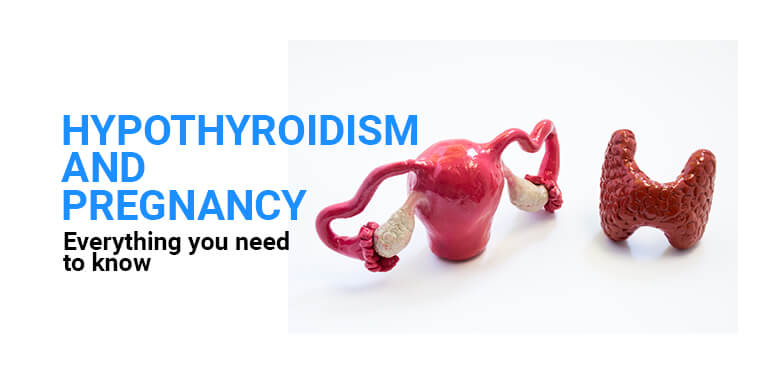Women who have hypothyroidism and wish to become pregnant face a particular set of challenges. Low thyroid function or uncontrolled hypothyroidism during pregnancy can cause:
- Anemia
- Miscarriage
- Preeclampsia
- Stillbirth
- Low birth weight
- Brain development problems in baby
- And other birth defects
Healthy women can also get hypothyroidism after pregnancy.
Some women who never had thyroid problems before they were pregnant, may develop hypothyroidism after having a baby. This is called postpartum thyroiditis. For many women, the condition resolves within 12 to 18 months, and medication is no longer required.
What to do when you are pregnant with hypothyroid?
If you have hypothyroidism and are pregnant, it’s important to take the following steps during the time you’re expecting.
Talk to your doctor about testing your hypothyroidism
Women can develop hypothyroidism while they’re pregnant. Some doctors routinely check thyroid levels during pregnancy to monitor for low thyroid hormone levels. If your levels are lower than they should be, your doctor may suggest treatment.
Stay up to date with your medication
Continue to take your medication as prescribed. It’s common to have frequent testing so your doctor can make any necessary adjustments to your thyroid medication as your pregnancy progresses. This ensures that the baby is getting enough thyroid hormone for organ development.
Eat well
Your body needs more nutrients, vitamins, and minerals while you’re pregnant. Eating a well-balanced diet and taking multivitamins while pregnant can help you maintain a healthy pregnancy, especially if you have hypothyroidism.
It’s easy to achieve healthy pregnancy with hypothyroidism.
Women with thyroid problems can and very often do have healthy pregnancies. It just needs a little more care which every expecting mother will be happy and willing to do.

